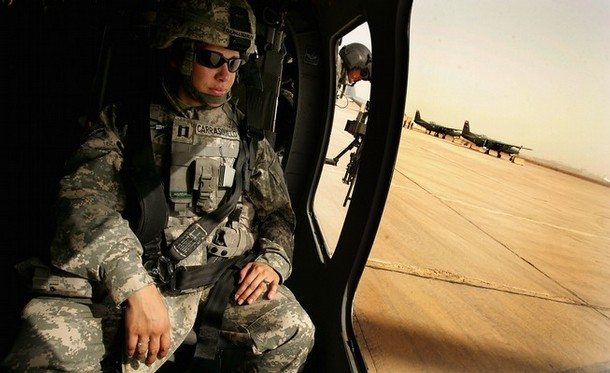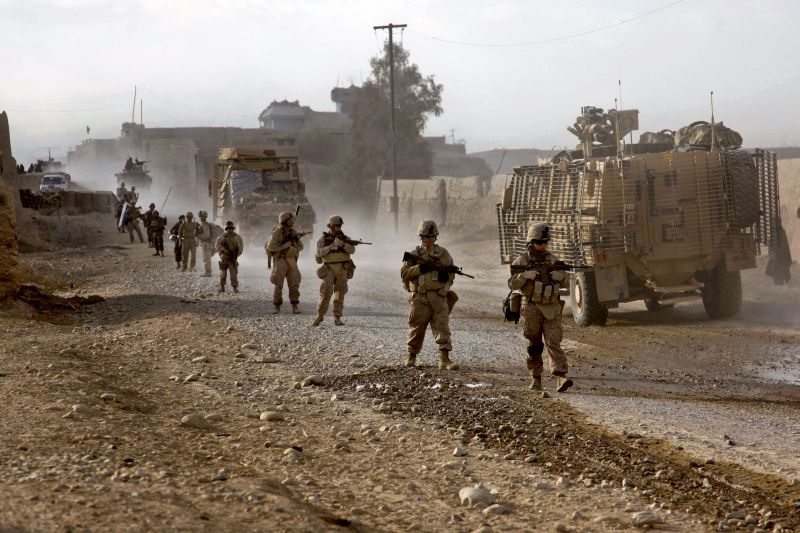Former US defense secretary Donald Rumsfeld said in an interview Monday the world was better off without Saddam Hussein but conceded his troop decisions in the Iraq war may have been wrong.
In his first television interview since leaving public life in December 2006 after a long and divisive tenure at the Pentagon, Rumsfeld also ripped into some of George W. Bush’s closest advisers, saying Condoleezza Rice lacked experience and Colin Powell showed poor management skills.
The television appearance is part of Rumsfeld’s effort to promote his new memoir, “Known Unkown,” which is due to be released Tuesday and which recounts his career in government spanning Republican presidents from Richard Nixon to George W. Bush.
The ex-defense chief was reluctant to endorse his former boss’s assessment that the decision to draw down US troops shortly after the 2003 invasion of Iraq was “the most important failure in the execution of the war.”
“I don’t have enough confidence to say that that’s right. I think that it’s possible,” Rumsfeld told ABC News anchor Diane Sawyer.
“We had (an) enormous number of troops ready to go in. They had — we had off-ramps, if they weren’t needed.
“It’s hard to know… You know, the path you didn’t take is always smoother,” he said.
Rumsfeld, who served as Bush’s defense chief for six years after holding the the same job under president Gerald Ford in the 1970s, acknowledged that “in a war, many things cost lives.”
But he had no regrets about his leadership for the wars in Iraq and Afghanistan — the latter now nearing its 10th anniversary.
“I think the world’s a better place with Saddam Hussein gone and with the Taliban gone and the Al-Qaeda out of Afghanistan,” Rumsfeld said, insisting the Bush administration made only an “incremental” move toward invading Iraq in the wake of the September 11, 2001 attacks on the United States.
Rumsfeld said it was not him but rather Paul Wolfowitz, the then deputy secretary of defense who became known as a major architect of the Iraq war, who raised Iraq at a the presidential retreat at Camp David shortly after 9/11.
Just as in his book, Rumsfeld offered some frank judgements in the interview about longtime rivals and critics.
Asked whether he admired his ex-boss’s father president George H.W. Bush — under whom he did not serve — Rumsfeld replied curtly: “No, I was kind of disappointed in him.”
Rice, who served as Bush’s national security adviser before later becoming secretary of state had “never served in a senior administration position,” a lack of experience that hampered her ability to organize critical meetings, Rumsfeld said.
He said Powell — Bush’s first top diplomat — “did not, in my view, do a good job of managing the people under him,” calling leaks out of the State Department “unhelpful.”
Rumsfeld said Powell, along with other top Bush advisers and officials, truly believed Saddam Hussein had weapons of mass destruction when he made a presentation to the UN Security Council in February 2003 — and never spoke up during meetings with the president to raise objections about the war.
“There’s a lot of stuff (in) the press that says Colin Powell was against it. But I never saw even the slightest hint of that,” he said.











